 W
WThe culture of England is defined by the cultural norms of England and the English people. Owing to England's influential position within the United Kingdom it can sometimes be difficult to differentiate English culture from the culture of the United Kingdom as a whole. However, since Anglo-Saxon times, England has had its own unique culture, apart from Welsh, Scottish or Northern Irish culture.
 W
WAn Anglophile is a person who admires England, its people, its culture, and the English language. Though "Anglophilia" in the strict sense refers to an affinity for England, it is sometimes used to refer to an affinity for the United Kingdom as a whole, including Scotland, Wales and Northern Ireland. In this case, the term "Britophilia" is a more accurate term, albeit a rarer one.
 W
WKilroy was here is a meme that became popular during World War II, typically seen in graffiti. Its origin is debated, but the phrase and the distinctive accompanying doodle became associated with GIs in the 1940s: a bald-headed man with a prominent nose peeking over a wall with his fingers clutching the wall.
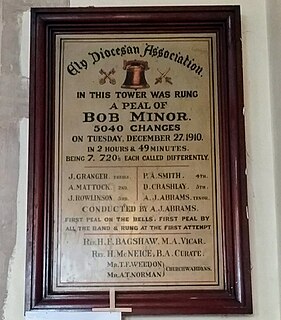 W
WChange ringing is the art of ringing a set of tuned bells in a tightly controlled manner to produce precise variations in their successive striking sequences, known as "changes". This can be by method ringing in which the ringers commit to memory the rules for generating each change, or by call changes, where the ringers are instructed how to generate each change by instructions from a conductor. This creates a form of bell music which cannot be discerned as a conventional melody, but is a series of mathematical sequences.
 W
WChange ringing software encompasses the several different types of software in use today in connection with change ringing.
 W
WThe Church of England is a Christian church and also the established church of England. The archbishop of Canterbury is the most senior cleric, although the monarch is the supreme governor. The Church of England is also the mother church of the international Anglican Communion. It traces its history to the Christian church recorded as existing in the Roman province of Britain by the 3rd-century, and to the 6th-century Gregorian mission to Kent led by Augustine of Canterbury.
 W
WThe Department for Digital, Culture, Media and Sport (DCMS) is a department of the United Kingdom government, with responsibility for culture and sport in England, the building of a digital economy, and some aspects of the media throughout the UK, such as broadcasting and Internet.
 W
WDonkey rides are a traditional feature of seaside resorts in the United Kingdom. Children are allowed to ride donkeys on a sandy beach for a fee in summer months while on holiday, normally led in groups at walking pace. Typically, the donkeys used to have their names on their harnesses so they could be identified by children and parents alike.
 W
WFootball hooliganism or soccer hooliganism constitutes barbaric behaviour perpetrated by spectators at association football events. Football hooliganism normally involves conflict between gangs, in English known as football firms, formed to intimidate and attack supporters of other teams. Other English-language terms commonly used in connection with hooligan firms include "army", "boys", "bods", "casuals", and "crew". Certain clubs have long-standing rivalries with other clubs and hooliganism associated with matches between them is likely to be more severe.
 W
WThe English Tea House and Restaurant is an English tea house and restaurant that was located in Sandakan, Sabah, Malaysia, on a little hill overlooking the Sulu Sea from the Sandakan Bay.
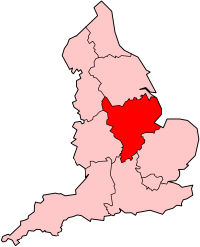 W
WEast Midlands English is a dialect, including local and social variations spoken in most parts of East Midlands England. It generally includes areas east of Watling Street, north of an isogloss separating it from variants of Southern English and East Anglian English, and south of another separating it from Northern English dialects. This includes the counties of Derbyshire, Leicestershire, Lincolnshire, Nottinghamshire, Rutland and Northamptonshire. Dialects of northern Derbyshire, Nottinghamshire and Lincolnshire usually share similarities with Northern English dialects. Relative to other English dialects, there have been relatively few studies of East Midlands English.
 W
WFagging was a traditional practice in British public schools and also at many other boarding schools, whereby younger pupils were required to act as personal servants to the eldest boys. Although probably originating earlier, the first accounts of fagging appeared in the late seventeenth century. Fagging sometimes involved physical abuse and/or sexual abuse. Although diminishing in its severity over the centuries, the practice of virtual enslavement of junior pupils by their seniors continued in some institutions until the last decades of the 20th century.
 W
WFit-up refers to the old style of theatre or circus where companies of travelling players or performers would tour from town or village to village in the provinces of Britain and elsewhere, particularly throughout the 19th-century. Taken from the noun 'Fit-up', the term is theatre slang to describe a stage or tent or booth that can be transported and erected quickly for shows. A fit-up company would be a travelling company of players which carries its scenery, props and costumes that can be set up in a temporary venue - which might be a large tent or a village hall. 'Fit-up' companies were particularly prevalent in 19th-century Ireland and a study of the performance histories of these has been made by Irish academics. The oldest of these Irish companies included the J. B. Carrickford Company and Tommy Conway/Keegan, who formed the Bohemian Minstrels in the early 19th-century.
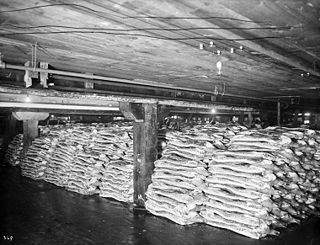 W
WThe awarding of a flitch of bacon to married couples who can swear to not having regretted their marriage for a year and a day is an old tradition, the remnants of which still survive in some pockets in England. The tradition was maintained at Wychnoure until at least the eighteenth century, but now the flitch required to be held remains only as a carving over the fireplace. At Little Dunmow in Essex a similar ceremony also survived into the eighteenth century. The tradition can be traced back to at least the fourteenth century at both sites and the Dunmow flitch is referred to in Chaucer. The awarding of a flitch at both sites seems to have been an exceedingly rare event.
 W
WA French leave is a departure from a location or event without informing others or without seeking approval. Examples include relatively innocuous acts such as leaving a party without bidding farewell in order to avoid disturbing or upsetting the host, or more problematic acts such as a soldier leaving his post without authorization.
 W
WA frog mug, toad mug or surprise mug also known as an ague mug is a type of ceramic vessel mainly used for drinking beer or similar alcoholic beverages. They were first produced in Sunderland before being copied in such places as Staffordshire, Worcestershire and Newcastle. These mugs were part of the tradition of drinking games such as fuddling cups and puzzle jugs. In this case the drinking vessels featured one or more painted or three-dimensional ceramic frogs or toads that slowly emerged at the bottom of the vessel it was drained.
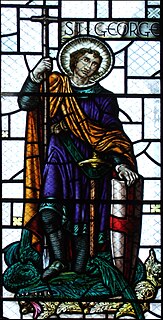 W
WSaint George is the patron saint of England in a tradition established in the Tudor period, based in the saint's popularity during the times of the Crusades and the Hundred Years' War.
 W
WA harvest festival is an annual celebration that occurs around the time of the main harvest of a given region. Given the differences in climate and crops around the world, harvest festivals can be found at various times at different places. Harvest festivals typically feature feasting, both family and public, with foods that are drawn from crops that come to maturity around the time of the festival. Ample food and freedom from the necessity to work in the fields are two central features of harvest festivals: eating, merriment, contests, music, and romance are common features of harvest festivals around the world.
 W
WThe Harvest Festival of Thanksgiving is a celebration of the harvest and food grown on the land in the United Kingdom. It is about giving thanks for a successful crop yield over the year as winter starts to approach. The festival is also about giving thanks for all the good and positive things in our lives such as family and friendships.
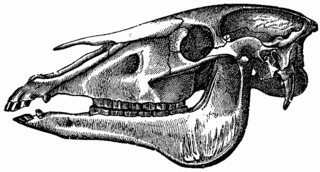 W
WIn Ireland, England, Wales, and the Scandinavian Peninsula, the skulls of horses have been found concealed in the structures of buildings, usually under the foundation or floor. Horse skulls have also been found in buildings in the United States, although in far fewer numbers. As part of the larger folk tradition of concealing objects in structures, horse skulls are related to concealed shoes, dried cats, and witch bottles.
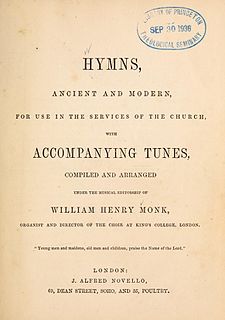 W
WHymns Ancient and Modern is a hymnal in common use within the Church of England, a result of the efforts of the Oxford Movement. Over the years it has grown into a large family of hymnals.
 W
WThis list of cultural icons of England is a list of people and things from any period which are independently considered to be cultural icons characteristic of England.
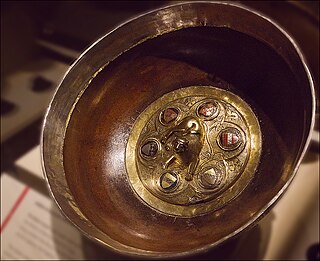 W
WA mazer is a special type of wooden drinking vessel, a wide cup or shallow bowl without handles, with a broad flat foot and a knob or boss in the centre of the inside, known technically as the print or boss. They vary from simple pieces all in wood to those ornamented with metalwork, often in silver or silver-gilt. They use dense impervious woods such as maple, beech and walnut wood. They are a north European medieval tradition, mostly made from the 11th to the 16th centuries.
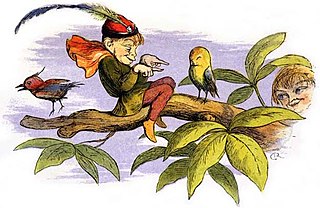 W
W"Merry England", or in more jocular, archaic spelling "Merrie England", refers to an English autostereotype, a utopian conception of English society and culture based on an idyllic pastoral way of life that was allegedly prevalent in Early Modern Britain at some time between the Middle Ages and the onset of the Industrial Revolution. More broadly, it connotes a putative essential Englishness with nostalgic overtones, incorporating such cultural symbols as the thatched cottage, the country inn and the Sunday roast.
 W
WThe phrase "Middle England" is a socio-political term which generally refers to middle class or lower-middle class people in England who hold traditional conservative or right-wing views.
 W
WOxbridge is a portmanteau of Oxford and Cambridge, the two oldest, wealthiest, and most famous universities in the United Kingdom. As of 2018, less than 1% of individuals applying to undergraduate courses through UCAS were admitted to these institutions. The term is used to refer to them collectively, in contrast to other British universities, and more broadly to describe characteristics reminiscent of them, often with implications of superior social or intellectual status or elitism.
 W
WA pantomime horse is a theatrical representation of a horse or other quadruped by two actors in a single costume who cooperate and synchronize their movements. One actor plays the front end, including the horse's head and its front legs, in a more-or-less upright posture and with a reasonable field of view afforded by eye holes in the horse's head. The other actor, playing the rear end of the animal, must bend at the waist so that his torso is horizontal like that of a horse and put his arms around the waist of the first actor. He can see little, although there are normally eye holes in the bottom part of the horse's torso to enable him to see where he is putting his feet and to enable him to breathe.
 W
WPlough Monday is the traditional start of the English agricultural year. While local practices may vary, Plough Monday is generally the first Monday after Twelfth Day (Epiphany), 6 January. References to Plough Monday date back to the late 15th century. The day before Plough Monday is sometimes referred to as Plough Sunday.
 W
WPosh and Becks is a widely-used nickname for the British celebrity supercouple Victoria Beckham and David Beckham. Posh & Becks is also the title of a book about the couple by Andrew Morton.
 W
WPunch and Judy is a traditional puppet show featuring Mr. Punch and his wife Judy. The performance consists of a sequence of short scenes, each depicting an interaction between two characters, most typically Mr. Punch and one other character who usually falls victim to Punch's slapstick. It is often associated with traditional British culture. The various episodes of Punch comedy—often provoking shocked laughter—are dominated by the clowning of Mr. Punch.
 W
WRestoration style, also known as Carolean style from the name Carolus, refers to the decorative and literary arts that became popular in England from the restoration of the monarchy in 1660 under Charles II until the late 1680s. Similar shifts appeared in prose style.
 W
WSheep shearing is the process by which the woollen fleece of a sheep is cut off. The person who removes the sheep's wool is called a shearer. Typically each adult sheep is shorn once each year. The annual shearing most often occurs in a shearing shed, a facility especially designed to process often hundreds and sometimes more than 3,000 sheep per day.
 W
WShin-kicking, also known as shin diggings or purring, is a combat sport that involves two contestants attempting to kick each other on the shin in order to force their opponent to the ground. It has been described as an English martial art. It originated in England in the early 17th century, and was one of the most popular events at the Cotswold Olimpick Games until the Games ended in the 1850s. It also became a popular pastime among Cornish miners. In the 20th century the sport was also practised by British immigrants to the United States. It was included in the 1951 revival of the Cotswold Olimpick Games, and remains one of its most popular events, run as the World Shin-kicking Championships. The event now draws crowds of thousands of spectators.
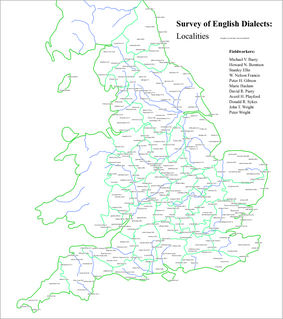 W
WThe Survey of English Dialects was undertaken between 1950 and 1961 under the direction of Professor Harold Orton of the English department of the University of Leeds. It aimed to collect the full range of speech in England and Wales before local differences were to disappear. Standardisation of the English language was expected with the post-war increase in social mobility and the spread of the mass media. The project originated in discussions between Professor Orton and Professor Eugen Dieth of the University of Zurich about the desirability of producing a linguistic atlas of England in 1946, and a questionnaire containing 1,300 questions was devised between 1947 and 1952.
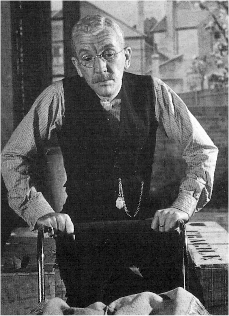 W
WThis Happy Breed is a play by Noël Coward. It was written in 1939 but, because of the outbreak of World War II, it was not staged until 1942, when it was performed on alternating nights with another Coward play, Present Laughter. The two plays later alternated with Coward's Blithe Spirit. The title, a reference to the English people, is a phrase from John of Gaunt's monologue in Act II, Scene 1 of William Shakespeare's Richard II.
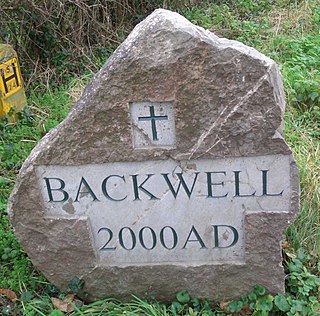 W
WIn many parts of England, an ornamental village sign is erected to announce the village name to those entering the village. They are typically placed on the principal road entrance or in a prominent location such as a village green. The design often depicts a particularly characteristic feature of the village or a scene from its history, heritage, or culture. They are typically made of wood or metal or a combination of both, the designs are often made by the local community.
 W
WThe Wakes Week is a holiday period in parts of England and Scotland. Originally a religious celebration or feast, the tradition of the Wakes Week developed into a secular holiday, particularly in North West England during the Industrial Revolution. In Scotland, each city has a "Trades Fortnight"; two weeks in the summer when tradesmen take their holidays.
 W
W"Who Ate All the Pies?" is a football chant sung by fans in the UK. It is usually sung to the tune of "Knees Up Mother Brown" and is aimed at overweight footballers, officials or other supporters.
 W
WWife selling in England was a way of ending an unsatisfactory marriage that probably began in the late 17th century, when divorce was a practical impossibility for all but the very wealthiest. After parading his wife with a halter around her neck, arm, or waist, a husband would publicly auction her to the highest bidder. Wife selling provides the backdrop for Thomas Hardy's 1886 novel The Mayor of Casterbridge, in which the central character sells his wife at the beginning of the story, an act that haunts him for the rest of his life, and ultimately destroys him.